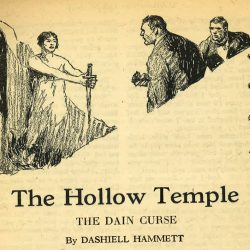
PseudoPod 939: Cheating Death
Show Notes
This material originally appeared in The Hitherto Secret Experiments of Marie Curie edited by Bryan Thomas Schmidt & Henry L. Herz published by Blackstone Publishing (©2023)
Cheating Death
by Henry Herz
I didn’t join in as my surviving family members conversed over dinner. Usually, the aroma of hearty pork and cabbage bigos stirred my appetite, but today it reminded me of the past, knotting my stomach. I winced—the clinking of utensils on plates like needles jabbing my brain.
Father gently pulled me aside. “What is wrong, my little Marya?” But he knew.
My sigh almost became a sob. “It’s been years, but I still miss them in the worst way, Tato.”
“Me too, Marya.”
Since the passing of my Roman Catholic mother, my father, a brilliant math and physics teacher, no longer suppressed his religious skepticism. By the age of fifteen, I too had lost faith in a deity who’d allowed disease to rip apart a loving family.
Science became my religion, defeating disease my Holy Grail. I vowed I’d wield science to cheat Death itself . . . for I still believed in it.
Father wrapped a strong, comforting arm around my shoulders and led me into the study. Boxes of laboratory equipment cluttered the room.
“What’s all this, Tato?”
He scowled. “My Russian supervisor barged into my lab at school and ordered me to shut it down. Sadly, we have no space to set up a lab here.”
My heart leaped. “Even so, will you teach me how to use the equipment?” It was a rhetorical question, for Father loved nothing more than encouraging his children to learn.
He smiled. “Yes, of course, Marya. Now help me carry these boxes to the shed out back.”
I did not receive a typical education, but then again, I was not a typical girl. Gradually under Father’s guidance, I gained familiarity with the equipment, supplementing my foundation in theoretical science. I filled a notebook with calculations and equations in my ungodly crusade to fight disease and repel Death. But I had no way to conduct experiments . . . yet. (Continue Reading…)


